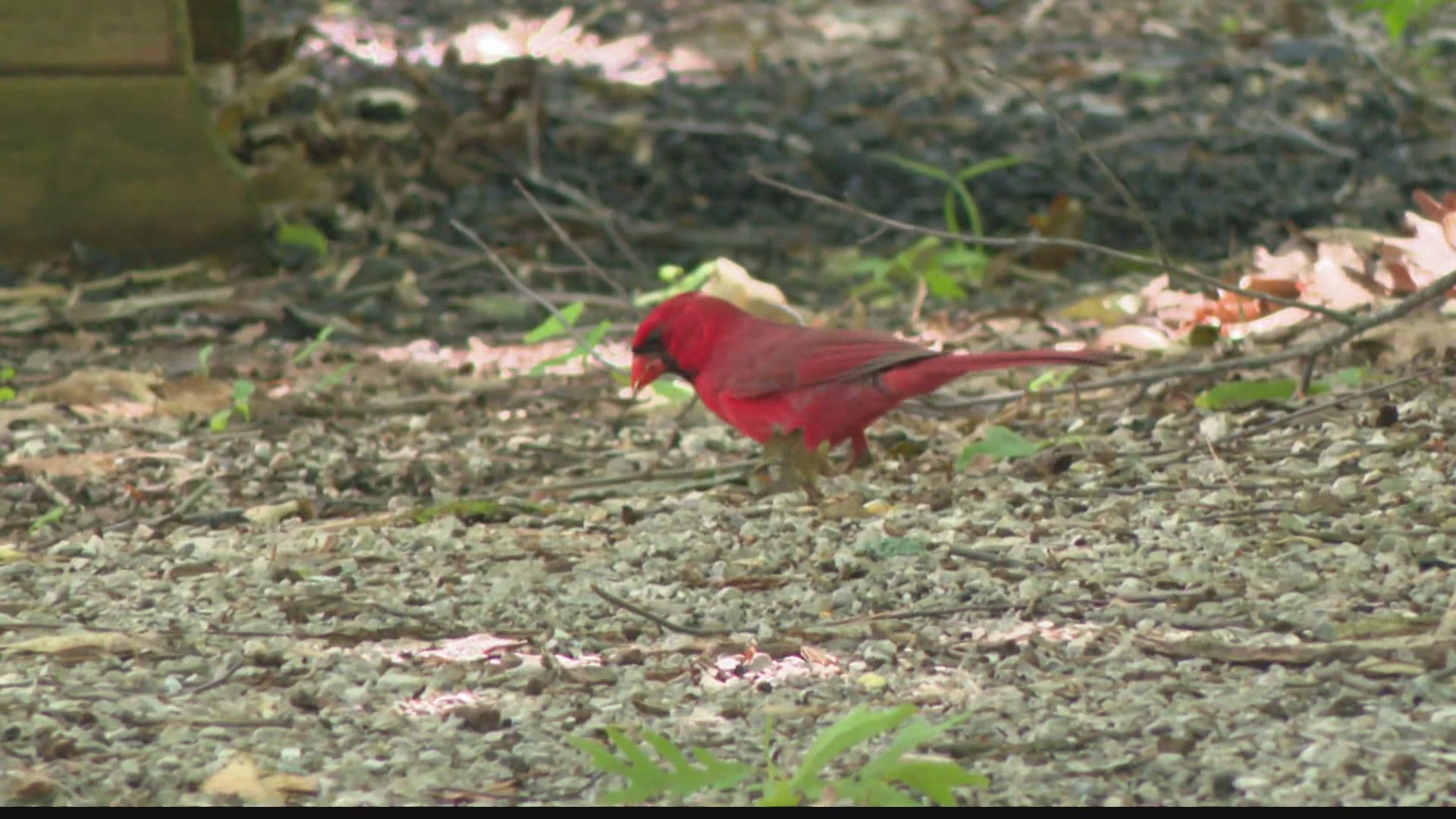INDIANAPOLIS — A mysterious illness plaguing the state with sick and dying birds has now been identified in 69 Indiana counties and so far 10 species have been reported as affected by the illness in the state.
The illness was initially found primarily in blue jays, robins, cardinals and starlings. However, the Indiana Department of Natural Resources added more bird species to the list of those affected by the disease, including brown-headed cowbird, common grackle, sparrow, house finch, red-headed woodpecker, and wren. Indiana DNR cautions it could be in other bird species as well.
Poultry has yet to be added to this list. However, the Indiana State Board of Animal Health is encouraging poultry owners to protect their chickens, ducks, turkeys and other domestic species from any potential exposure to wild birds while the DNR investigates the illness.
Afflicted birds have been found in 69 of Indiana's 92 counties since the first reports of the illness in late May.
And Indiana isn't the only state where birds are dying from this illness. By the beginning of July, similar cases had been found in a total of eight states. Since then, more states have been added to the list. According to the New Jersey Division of Fish and Wildlife, sick and dying songbirds have now been found in these 12 states:
- Indiana
- Washington, D.C.
- Tennessee
- Kentucky
- Virginia
- West Virginia
- Maryland
- Delaware
- Ohio
- Florida
- Pennsylvania
- New Jersey
It's still unclear why these birds are dying but the DNR has ruled out some possible causes including avian influenza, West Nile virus, and other flaviviruses, Salmonella and Chlamydia (bacterial pathogens), Newcastle disease virus and other paramyxoviruses, herpesviruses and poxviruses, and Trichomonas parasites.
RELATED: Indiana DNR rules out some possible illnesses in songbird deaths, still trying to find cause
Symptoms of the illness include eye discharge or eyes crusted over, neurological problems including tremors and disorientation, swollen heads and an inability to fly.
If someone spots a bird with the illness or a dead bird, they are asked to report it to the DNR here.
Anyone coming across one of the dead birds should double-bag it and dispose of it with the household trash. You should not touch the bird with your bare hands and instead use disposable gloves or a bag to pick it up.
Pets should be kept away from areas with sick birds or where a bird has died.
People should also remove bird feeders including those with seed or nectar. It will not hurt the birds as DNR says there is plenty of food naturally right now. The hope is that if bird feeders are removed, birds won't be in such close proximity to each other and that will limit the spread.
Bird feeders and baths should be cleaned with a 10% bleach solution, rinsed thoroughly and allowed to dry before being put away inside.

